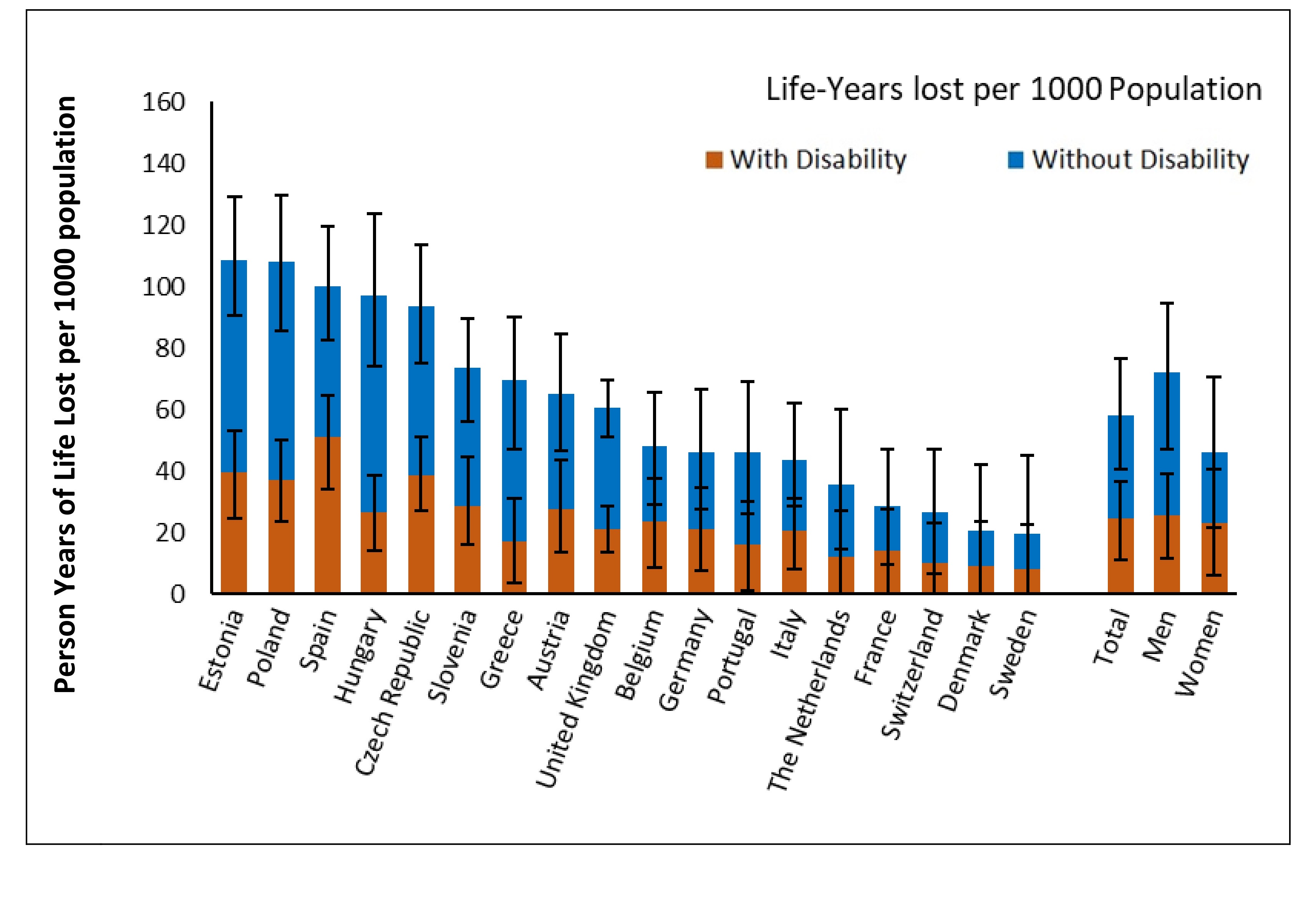It’s five years to the day since the World Health Organization (WHO) officially declared COVID-19 a pandemic. For many, life in the immediate aftermath of that moment became unrecognizable; for some, the change was permanent. As well as its direct impact on millions, causing not only deaths but disability in the form of long COVID, the public health emergency left a legacy of indirect impacts on wellbeing. A new study led by researchers at Imperial College London has put some numbers to this.
ADVERTISEMENT
Looking at data for adults aged 35 and over – a total of 289 million people – across 18 European countries, the international team sought to quantify the lost life years due to the pandemic. In other words, they were asking how many extra years people in this population may have lived had the pandemic not happened.
The researchers tracked the transition from a disease-free state through different combinations of cardiovascular illness, cognitive impairment, dementia, and disability, and eventually death. They were able to look separately at disease caused directly by a COVID-19 infection and unrelated causes, and also measured both disabled and disability-free life years lost between 2020 and 2022. All this was achieved with sophisticated computer modeling and statistical analysis.
The topline figure is that 16.8 million years of life were lost during this period. More than half of these years, the authors found, would have been lived without disability, even in people aged over 80.
“The substantial proportion of years of life lost without disability bring to light an instinctive underestimation of the pandemic’s impact, especially on the older population,” the authors said in a statement.

Person years of life lost per 1,000 population in the 18 countries, with and without disability. The error bars represent 95 percent uncertainty intervals obtained from Monte Carlo simulation.
Breaking things down by country revealed marked variability. Estonia saw the highest person-years of life lost (PYLL) per 1,000 population, at 108.9, with Sweden the lowest at 19.6. A link was observed with gross domestic products, with countries at the lower end of the scale seeing higher PYLL.
Within the 16.8-million-year total, 3.6-5.3 million lost years were found to be due to non-COVID-related mortality and the indirect impacts of the pandemic. These indirect impacts were observed to continue to increase after widespread vaccine rollouts in 2021, even as the direct COVID-19 deaths generally began to decrease.
The pandemic at 5
Five years ago, on March 11, 2020, the WHO made its official declaration that the novel coronavirus disease that originated in China had reached pandemic status. Quarantine orders and lockdowns, where they hadn’t already been enacted, soon followed, with many global citizens experiencing unprecedented restrictions on their freedom of movement in the name of stopping the spread of the virus.
Almost immediately, bitter arguments began over the effectiveness and necessity of these restrictions, coupled with the meteoric rise of online mis- and disinformation about the disease.
The incredible speed with which vaccines were developed was a testament to the ingenuity and dedication of the scientific community, and what we can achieve when we work towards a common goal. However, vaccine skepticism – an ever-present thread running through some sectors of society for decades – threatened the mission of health authorities to change the course of the pandemic once and for all by immunizing the population. That’s without even mentioning the global inequities in vaccine access impacting thousands in less economically developed nations.
But in the end, it was the vaccines that played the single biggest part in bringing the acute health emergency to an end. We continue to learn more about how best to employ them – how frequently they should be updated, for instance, and how often people should get booster shots – as well as refining the clinical treatment of acute COVID with antiviral drugs and supportive care in hospitals.
ADVERTISEMENT
After fraught initial debate and confusion, we know beyond doubt that this disease spreads through the air and understand the role of mitigations like face masks and air filtration, even as disagreements still rage over where and when these should be implemented.
We know far more now about what the SARS-CoV-2 virus does to the human body, though there’s still much left to learn about who is most at risk from complications. Scientific work to better understand long COVID also continues apace, in the hope of potential future treatments and maybe even a cure.
A lot has happened in five short years, and that doesn’t even begin to address the individual social, economic, and health impacts on people around the globe – from psychological harm, to loss of income, to missing important life milestones and experiences.
This new study, according to lead author Dr Sara Ahmadi-Abhari, reveals another layer of the impact of COVID-19. It’s one that has perhaps been less well understood, but that the authors believe is vital to come to grips with before humanity must grapple with the next pandemic, whatever that may be.
ADVERTISEMENT
“Our findings illustrate the pandemic’s long-term impact, which extends beyond COVID-19 deaths. While vaccination played an important role to limit direct losses from COVID, the continuously rising loss of life from other causes highlights the broader consequences of the pandemic, possibly arising from disruptions in healthcare,” Dr Ahmadi-Abhari said.
“The substantial loss in years of life, particularly given more than half would have been lived without disability, underscore the critical need for a comprehensive pandemic preparedness program which could provide both immediate and long-term public health benefits.”
The study is published in the journal PLOS Medicine.
Source Link: COVID-19 Pandemic 5 Years On: 16.8 Million Life Years Lost In Europe From 2020-2022